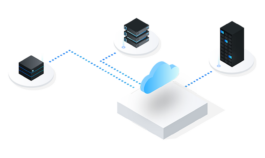Building Sustainable Aviation Practices to Achieve Net Zero

Over the past few years, sustainability commitment across various industries have emerged, the aviation industry being no exception. For IBM, we’ve been focused on environmental conservation and sustainability for more than 50 years, and have also made commitments.
As a trusted technology and consulting partner to the aviation industry for decades, here we share our point of view and examples on sustainable aviation practices, the benefits of carbon offsetting and our efforts in supporting the industry to calculate, track and report aircraft emissions to help achieve their sustainability commitments toward net-zero emissions.
The Pursuit of Sustainable Aviation Practices:
Emission-free aviation requires holistic strategies. One example is the use of Sustainable Aviation Fuels (SAFs) made from renewable sources. These fuels have a lower carbon footprint than traditional jet fuels and can be used in existing aircraft engines without any modifications. Hybrid and electric aircraft are also being developed, which can significantly reduce carbon emissions and noise pollution. In addition, improving air traffic management, promoting sustainable airport operations, using sustainable aircraft interiors, and investing in carbon offsetting programs are some other sustainable aviation practices.
Carbon offset Programs
Carbon offset programs have gained popularity in the aviation industry, particularly among business aircraft operators. Companies like NetJets, VistaJet, AirPartner, and others have implemented carbon offset programs to allow clients to mitigate the environmental impact of their flights. These programs involve investing in verified carbon reduction projects or purchasing carbon credits to support initiatives that reduce or remove greenhouse gas emissions. By participating in these programs, business aircraft operators demonstrate their commitment to environmental responsibility and contribute to global efforts to combat climate change.
Current carbon offset limitations:
The voluntary carbon offset market grew to nearly $2 billion in 2022, with forestry project programs like Redd+ contributing half of this amount. However, the availability of cheap carbon credits hinders emission reduction efforts and creates a false sense of security. To promote quality, experts recommend prioritizing sequestration projects, setting a minimum price of $30 per ton of CO2 equivalent, and focusing on reducing carbon footprints through direct investment in impactful sequestration or reforestation projects.
IBM’s Contribution to Sustainable Operations in Aviation
No matter where organizations are on their sustainability journeys, data is key for environmental action: without detailed insights into environmental impact, it’s difficult to take systematic steps to reduce it. Without data, sustainability is not visible, it’s not actionable, and it’s not operational.
This is why IBM offers the most comprehensive portfolio of technology and sustainability consulting expertise to help organizations turn sustainability ambition into action. From our market-leading ESG reporting and performance Envizi Suite, Intelligent asset management portfolio to reducing energy consumption through Green IT computing through to building smarter more resilient supply chains, we help organizations around the globe become sustainable enterprises.
Supporting the aviation industry to better understand and leverage their data includes calculating, tracking, and reporting aircraft emissions to mitigate carbon footprint. IBM’s Aircraft Emissions Management (AEM) solution enables the industry to calculate, monitor, and report their carbon emissions. AEM collects data from various sources, such as flight operations, fuel consumption, and maintenance, to provide accurate and comprehensive emissions data. The solution also provides analytics and reporting capabilities, enabling companies to identify emissions hotspots and develop strategies to reduce their carbon footprint.
IBM has also developed an Aviation Environmental Insights tool (AEI), which uses artificial intelligence and machine learning to calculate aircraft emissions based on various factors such as flight data, weather conditions, and aircraft configuration. This tool can track emissions over time, provide insights into emissions data, and recommend strategies for reducing emissions. The aviation industry can now gain better insight into their carbon footprint and develop strategies to reduce their environmental impact. This, in turn, can help them to meet regulatory requirements and sustainability goals while improving their reputation as environmentally responsible businesses.
IBM also leverages a cloud-based climate and sustainability platform that combines proprietary and third party geospatial, weather, environment and IoT data to help the aviation industry derive data insights and make more informed sustainable operational decisions. The platform is called The IBM Environmental Intelligent Suite (EIS).
We continue to invest in research and development, delivering advanced capabilities across our sustainability portfolio. Our recent announcement of the new geospatial foundation model, part of IBM’s watsonx.ai geospatial offering, will be available through the EIS platform later this year.
As the aviation industry accelerates its path to achieving net zero operations, IBM continues to support the industry through learnings from our own journey and our experience in helping clients around the world pursue their sustainability goals. The strides made within the aviation industry around Sustainable Aviation Fuels, development of hybrid and electric aircraft and work to improve air traffic management and sustainable airport operations, including investing in carbon offsetting programs, are great strides toward reducing carbon emissions and we are excited to be supporting the journey to net zero aviation.

Stephane Henri, Partner, Aerospace and Defense
IBM Consulting

Tamer Fares, PhD Cognitive, Senior Consultant, Aerospace and Defense
LGS/IBM Consulting

Paul-Alexandre Fernandes, IT Architect & Senior Sustainability Consultant
LGS/IBM Consulting
Interested in receiving our sustainability newsletter direct to your mailbox?
Want to see all our sustainability research and reports?


